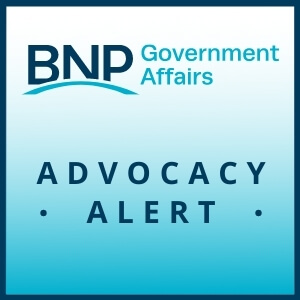5/1 Webisode: NYS Shared Work Program – Retain Employees During a Slowdown
Blog Categories
May 16, 2020
The economic impacts of COVID-19 are affecting Buffalo Niagara businesses and their workforce. Fortunately, there are state programs to help – The NYS Shared Work Program helps employers avoid some of the problems caused by a layoff.
Employees can receive partial unemployment insurance benefits while working reduced hours. By keeping your employees during a temporary slowdown, you can ramp up quickly when business conditions improve.
We hosted a webisode with experts from Rupp Baase Pfalzgraf Cunningham Attorneys and Alcott HR to dive deeper into the program and answer your questions. The following topics were covered:
- Who Can Apply/Qualify:
- Part-time and full-time employees eligible
- Exempt and non-exempt employees eligible
- Employees to be covered by program must work 40 hours or less
- Program applies to “units” of employees, not individuals
- Hours and wages must be reduced by 20%-60%
- Claim Process and Timeline:
- Unemployment claims must be made in addition to applications for the program
- Program in effect 53 weeks from start of approval
- Currently (as of April, 2020) – Approval process has been moving quickly (few days from application date)
- Inner Workings of The Plan:
- Employer obligations – weekly reports
- Weekly certification while plan is active
- Impacts on PPP loans, PUC, and other federal plans
- Benefits:
- Avoid burden of layoffs
- Retaining loyal and talented employees
- Eliminating future recruiting and training costs
For More, Watch the Full Presentation:
*****
The Buffalo Niagara Partnership is committed to providing employers with the latest information and resources to help you deal with COVID-19 and its impact on our community, state, and nation. Visit our Events Page and Resource Page, as they are updated regularly to provide you with the most current information.
We will continue to follow up as more information becomes available. Given the fluidity of this situation, please feel free to reach out to us with questions at connect@thepartnership.org and even more importantly, if you are willing to share best practices.
Thank you to Emily Buerger, HR Generalist, Alcott HR and Matthew Miller, Partner, Rupp Baase Pfalzgraf Cunningham Attorneys for their expertise:

Related Posts
3.10.21 COVID-19 Bulletin: American Rescue Plan Passes
Today, the State Legislature is passing a short-term budget extender, indicating a continued lack of consensus on a budget deal. The extender allows the state government to continue operations while buying time for the Governor and Legislature to reach an agreement on a number of outstanding issues. As we
3.3.21 COVID-19 Bulletin: NYS Updates
Today, the State Legislature is passing a short-term budget extender, indicating a continued lack of consensus on a budget deal. The extender allows the state government to continue operations while buying time for the Governor and Legislature to reach an agreement on a number of outstanding issues. As we
1.27.21 COVID-19 Bulletin: Cuomo Lifts Zone Restrictions in WNY
Today, the State Legislature is passing a short-term budget extender, indicating a continued lack of consensus on a budget deal. The extender allows the state government to continue operations while buying time for the Governor and Legislature to reach an agreement on a number of outstanding issues. As we
1.25.21 COVID-19 Bulletin: PPP Round 2 Is Open & NYS Unemployment Insurance Update
Today, the State Legislature is passing a short-term budget extender, indicating a continued lack of consensus on a budget deal. The extender allows the state government to continue operations while buying time for the Governor and Legislature to reach an agreement on a number of outstanding issues. As we

